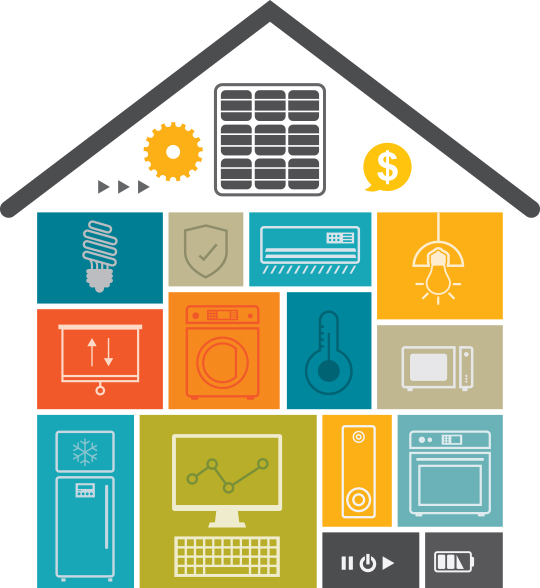By Cory Sekine-Pettite
October is Energy Awareness Month, an annual, national effort by the Department of Energy to highlight the importance of energy to our national prosperity and security. Essentially, the agency wants people to recognize the vital role that electricity generation plays in our everyday lives — from delivering clean drinking water to powering the internet.
But this occasion also is a good time to help consumers find ways to use less energy, save on their energy costs, and reduce pollution in the process. There are many, simple things we can do around our homes to conserve energy. You already may be familiar with some of the more common tips, such as using appliances (dishwashers, washers and dryers) at off-peak times, keeping blinds closed and ceiling fans spinning in the summer to reduce air conditioning usage. But there may be some pointers of which you are not aware. We looked to the experts at Georgia Power and Cobb EMC for the following energy-saving advice. You can find more solutions from each company’s website: georgiapower.com and cobbemc.com, respectively.
- Outside your home, caulk around all penetrations including telephone, electrical, cable, gas, water spigots, dryer vents, etc.
- When using the fireplace, turn down your heating system thermostat.
- Wash clothes in cold water. Use hot water only for very dirty loads.
- Replace any light bulb, especially ones that are on more than one hour per day, with a light emitting diode (LED) bulb.
- Use a slow cooker instead of simmering foods on the stove.
- Plug electronic devices such as cable boxes, printers and TVs into power strips to turn off during vacations or long periods without use.
- Lower your thermostat when large groups of people are expected during the winter.
- Keep plants and brush at least three feet away from outside heating and cooling units so they can operate more efficiently.
- Decorate with light-colored walls, rugs, window treatments, and upholstery to reflect light and reduce the need for artificial light.
- Making or reheating a small meal? Use your microwave. Cooking small portions in the microwave or toaster oven generates less heat than the stove or oven and can reduce electrical usage for cooking by as much as 80 percent.




